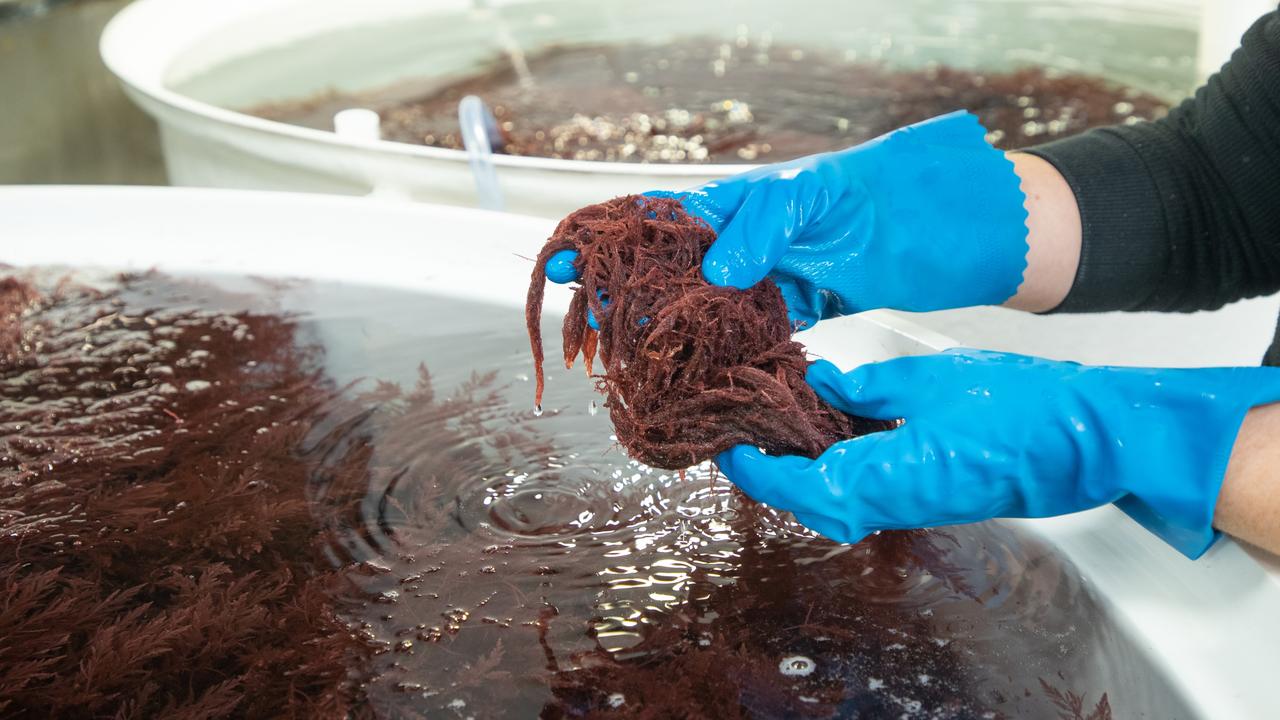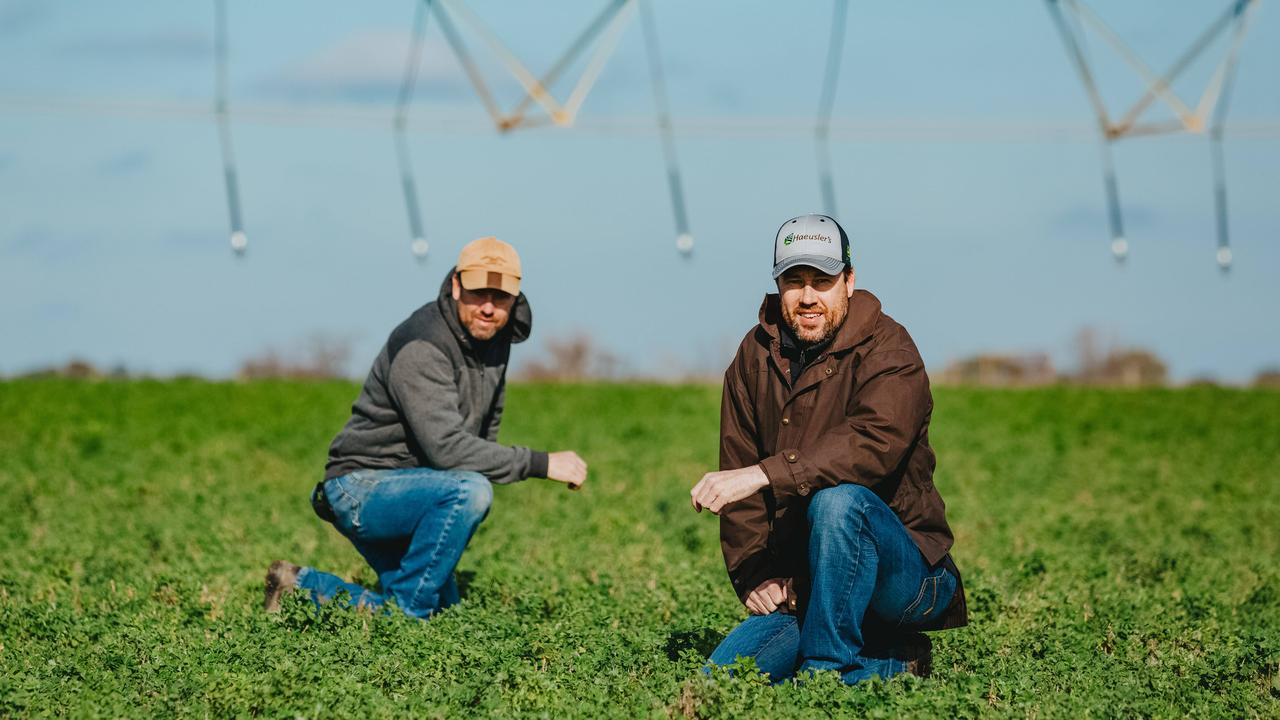McIvor Farm boosts soil and sales with regenerative agriculture
The Hagan family has scaled up their free-range Berkshire operation while doubling down on regenerative agriculture principles. The results are plain to see in soil health and pork turnover.
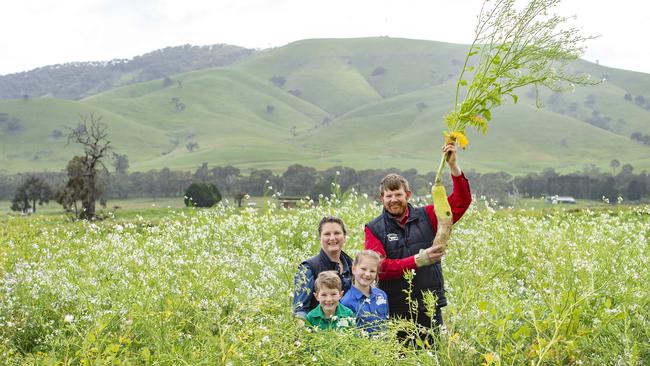
FREE-RANGE pig farmers Belinda and Jason Hagan have really gone the whole hog with their Berkshire pig operation.
The hardworking couple run McIvor Farm Foods, rearing 120 sows on 200 hectares at Tooborac, south of Heathcote, in central Victoria.
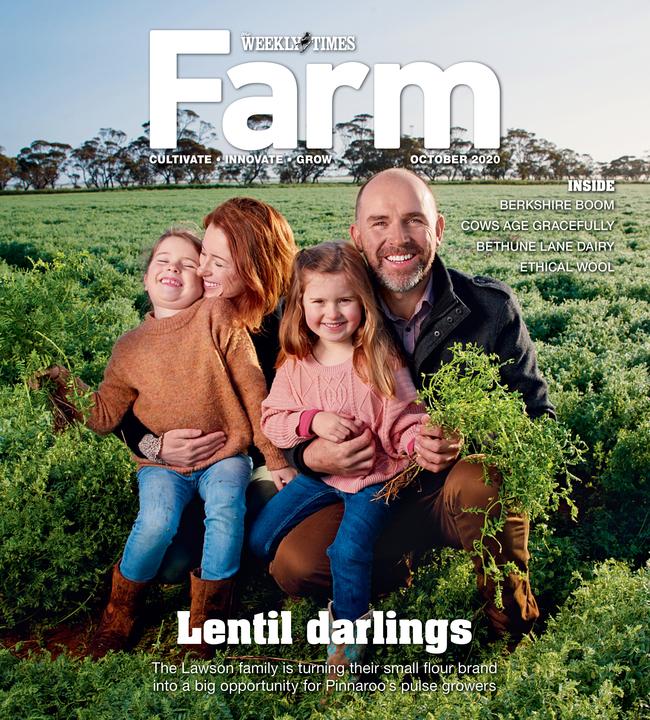
They have expanded impressively since winning the Farm magazine Outstanding Farmer of the Year award back in 2012, when their business was just two years old.
“Still a driver in our business, 10 years on, it is all about that resilience,” says Belinda, explaining their growth has come with plenty of challenges, from mid-decade drought to this year’s pandemic.
In the past eight years, the Hagans more than doubled their sow numbers, bought more land, added a licensed butchery to their farmgate shop, launched online sales with direct delivery and created a local food hub.
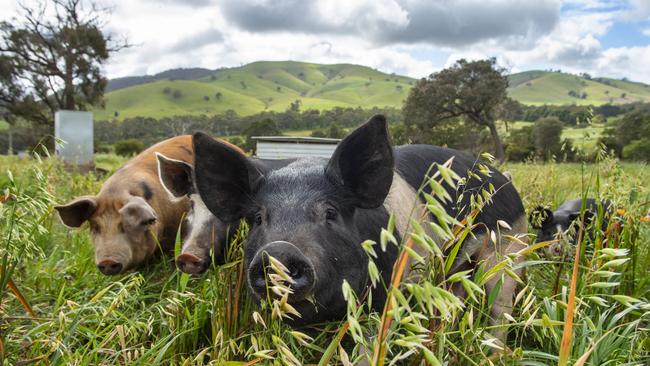
The most significant change, they say, is their shift to immerse themselves in regenerative agriculture and soil health.
“I really think we were just focused on very simple grazing management in 2012,” Belinda says, thinking back on all they have achieved.
“We were moving pigs two to three times a week, to get them to disturb the soil and fertilise it, then moving them on. I don’t think we understood the concept of regenerative agriculture.
“Now it has all had to come back to the soil. It is like the foundations of your home.”
The Hagans’ land-management principles have evolved to include multi-species pasture cropping, which has become almost an obsession for Jason. He adapted an old Yeomans plough – “we call it the super plough,” Belinda says – so it can deep rip and sow crops, including daikon radishes, grasses and grains, in a single pass.
The aim is to have green feed on farm all year long, with each season’s planting including up to nine plant varieties that work in concert to improve soil health, and provide a delicious diet for their Berkshires.
“If you just had to eat daikon radish every day, you’d get pretty sick of it and it would change your gut flora as well,” Belinda explains. “We are creating biodiversity in our soils. Then what we are seeing is an abundant amount of insect life … and birdlife increase.
“We get pretty excited about that.”
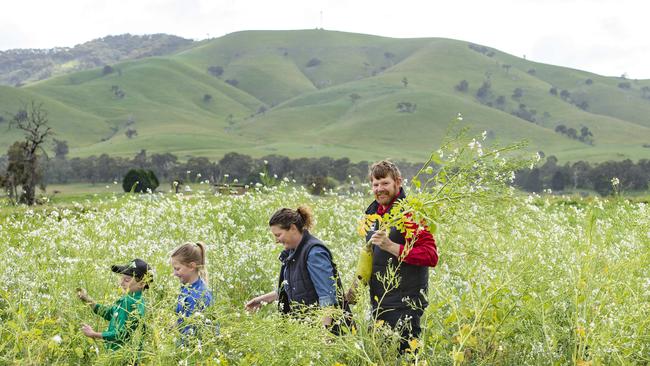
TRYING TIME
Their regenerative agriculture approach was really put to the test in about 2016, when drought started to bite across southeast Australia.
“If you don’t have those foundations strong, or that healthy good soil, everything heads to sea straight away (during drought),” Belinda says.
While their efforts had improved water catchment and built top soil, the land did not escape the effects of low rainfall.
“As much as Victoria wasn’t known as being in the worst drought – NSW and Queensland were so much worse – we were still sitting here watching our top soil blowing away,” Belinda says. “Top line feed prices were so high. I talked to Jason about our survivability.”
With grain prices killing them financially, the couple thought carefully about their self-imposed stringent feed requirements, particularly their commitment to not feeding any GM grain to the Berkshires.
“We have really high standards and expectations of ourselves and our business,” Belinda says. “We could have relented on them.”
But they didn’t, instead redoubling their efforts with pasture and soil, and saving in other areas such as farm labour. They are now reaping the rewards, with micro-ecosystems popping up across the property and rich black top soil in a region that is known for its granitic sand.
They have also recently increased staff, employing eight people.
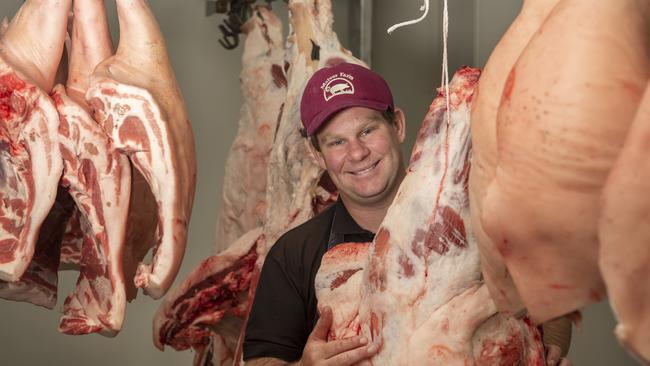
PORK TO THE DOOR
McIvor Farm Foods processes about 40 pigs a week through the Sinclair abattoir at Benalla.
Pre-COVID, about 80 per cent of their production was sold through butchers’ shops while the remaining 20 per cent was a split between farmers’ markets, restaurants and cafes.
When the pandemic forced some markets to cancel and restaurants to close, Belinda strapped herself in for a bumpy year.
She was hopeful the business’s multiple sales channels would help see them through, but was pleasantly surprised by what happened next. Belinda teamed up with Lizette Snaith, of Warialda Belted Galloway Beef, to open an online shop and offer direct delivery to doorsteps.
She was blown away by customer support, with orders coming in from people who had previously followed McIvor Farm Foods on social medial, but not been able to attend farmers’ markets.
The Hagans also turned their farmgate shop, with its recently completed butchery, into a local food hub, so neighbouring producers could continue selling to regional customers.
Uptake has been tremendous, with Belinda opening for collection once a week.
Though they now attend just three farmers’ markets a month, down from their pre-pandemic highs of nine, the boom in online orders has made up for lost sales volume. And they get to spend more time with their children, Hannah, 8, and Eric, 7.
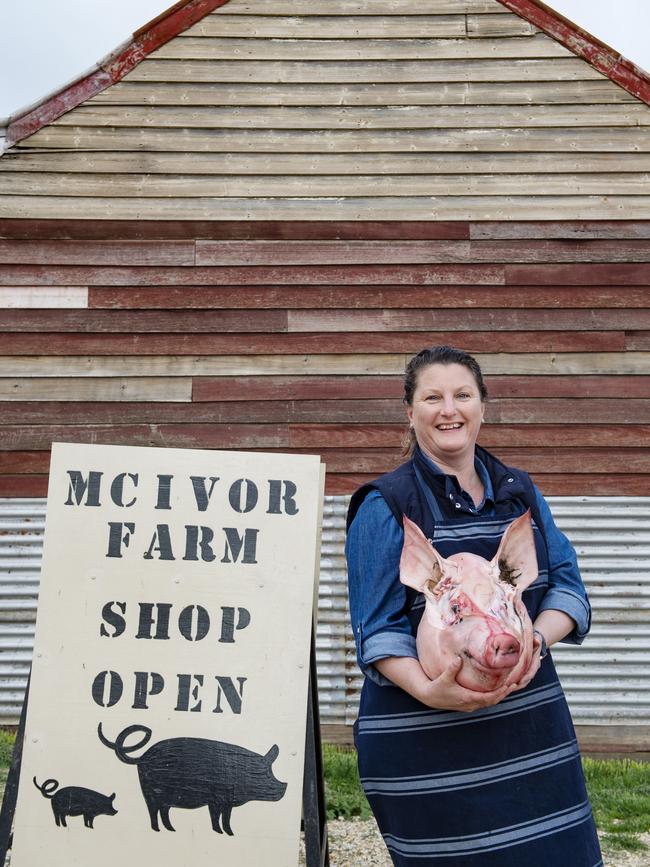
The couple is also excited about their on-farm butchery. It is a nod to Jason’s family, who originally ran a butcher’s shop on the property.
Until now, the couple has relied on external butchers to carve carcasses to their requirements.
Now, they will be able to have direct control over the end product, Belinda says.
“Every animal that we butcher, every animal we produce, is unique,” she explains. “We wanted to have that control to be able to grow and become more creative with our product.
“So, you have an animal that has come through carrying more fat than another one, and now we can alter where we put those animals.
“We can potentially up our yield and be more profitable.”
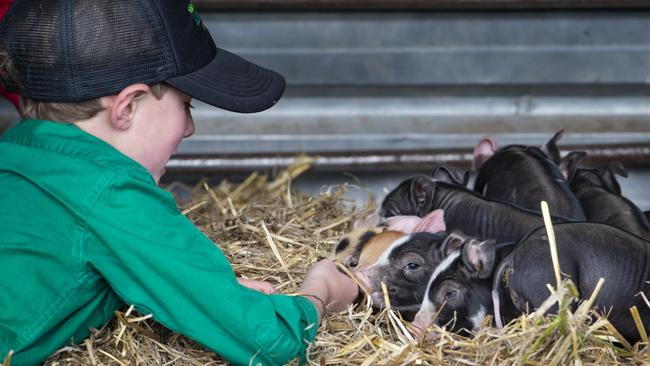
HAPPY ENDING
The lead-up to Christmas is traditionally the busiest time of year for the Hagans.
“There is a saying that farmers make hay when the sun shines. For a pig farmer, it’s make hams when it’s Christmas,” Belinda says with a laugh.
They hope demand for hams will be as strong as in past years, and early indications are that COVID will not disrupt most people’s festive meal plans.
“The response we have had from customers is that they are all looking forward to Christmas. Whether or not they can have the family for dinner, they are having that ham,” she says.
Logistics will be trickier than in past years, when pre-pandemic operations did not include doorstep delivery.
“We can’t offer it throughout the year, then at Christmas time say, ‘no, we can’t do it’,” says Belinda, anticipating ham delivery be a manageable challenge. So, McIvor Farm Foods famous legs will be available straight to the front door for the lucky people who place an early order.
Belinda and Jason will also be tucking in to ham as they see out 2020.
“You’d think after 10 years of eating our pork, we’d be sick of it,” Belinda says. “Our families support us and it is the highlight of their celebration as well, because they don’t see much of us all year. So we still look forward to sitting down on Christmas Day, glazing the ham and carving away.”
FARM FILE: McIVOR FARM FOODS
Belinda and Jason Hagan rear old-breed Berkshire pigs on 200 hectares at Tooborac with their children, Hannah, 8, and Eric, 7. Since winning the Farm magazine category of the Farmer of the Year awards in 2012, the family has immersed themselves in regenerative agriculture to rejuvenate their soils, while doubling sow numbers, adding an on-farm butchery and launching an online shop.
Where: Tooborac, central Victoria
MORE
GUIDE TO ORDERING DIRECT FROM VICTORIA’S LOCAL PRODUCERS

